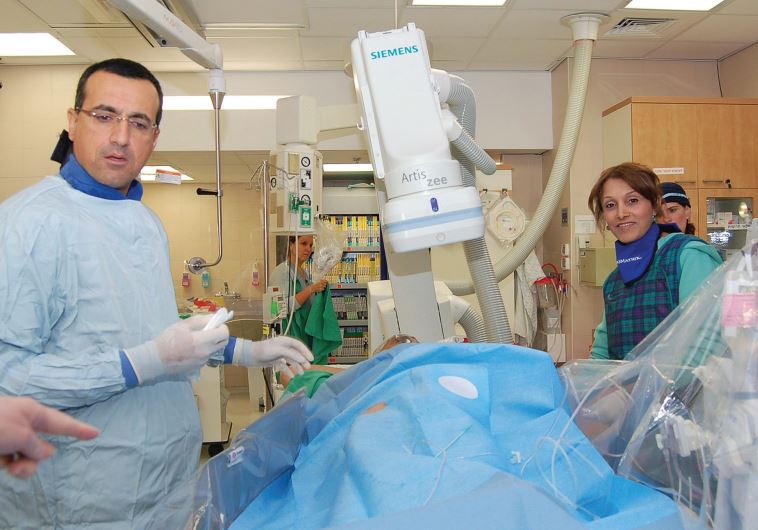The little hospital that could
Rehovot’s Kaplan Medical Center has a new director-general keen on raising money for development that will turn it into one of the country’s best.
 KAPLAN SURGEONS hard at work.(photo credit: COURTESY KAPLAN MEDICAL CENTER)
KAPLAN SURGEONS hard at work.(photo credit: COURTESY KAPLAN MEDICAL CENTER)